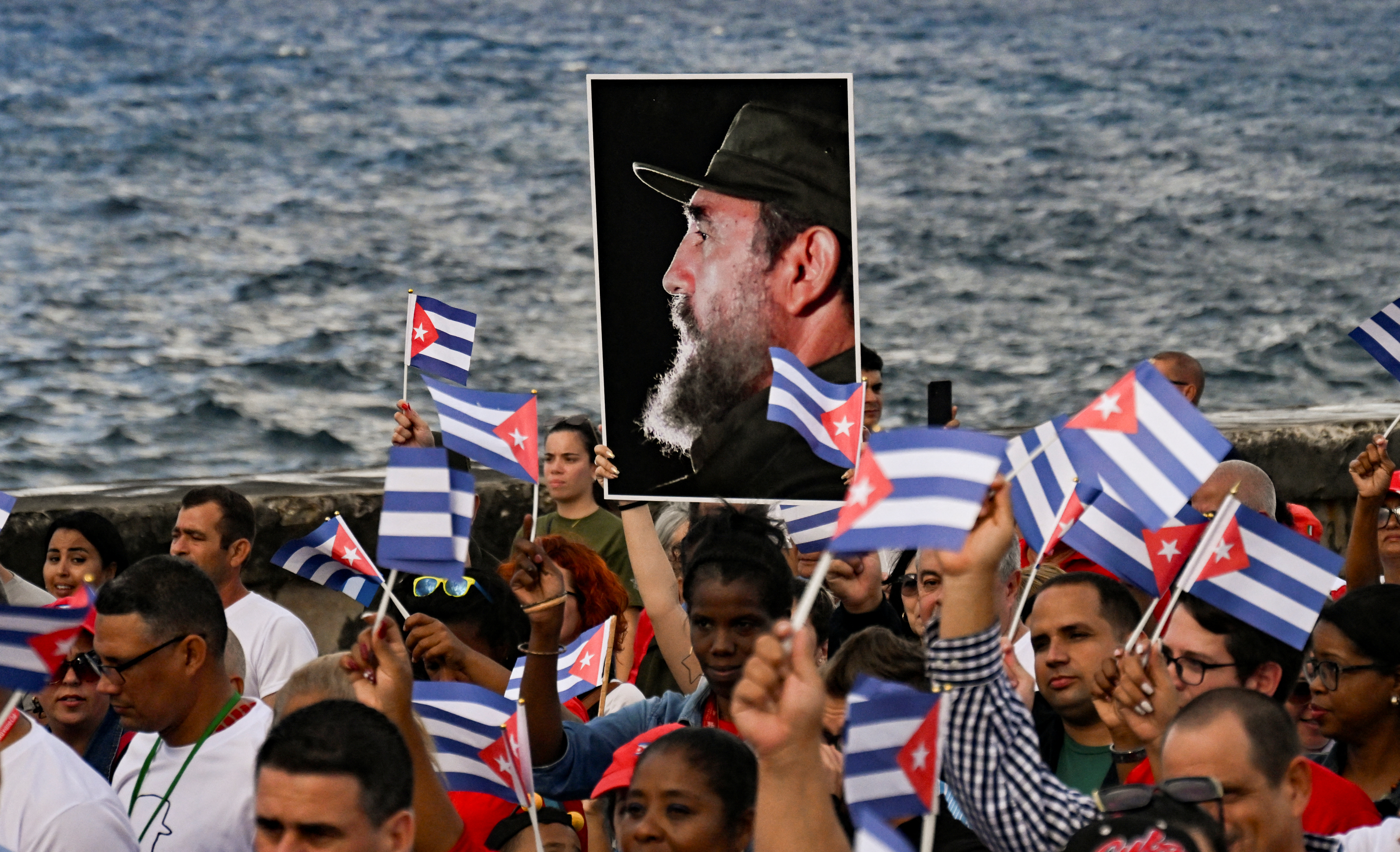Cuba Immigration Changes Under Trump: The End Of An Era Of Preferential Treatment

Welcome to your ultimate source for breaking news, trending updates, and in-depth stories from around the world. Whether it's politics, technology, entertainment, sports, or lifestyle, we bring you real-time updates that keep you informed and ahead of the curve.
Our team works tirelessly to ensure you never miss a moment. From the latest developments in global events to the most talked-about topics on social media, our news platform is designed to deliver accurate and timely information, all in one place.
Stay in the know and join thousands of readers who trust us for reliable, up-to-date content. Explore our expertly curated articles and dive deeper into the stories that matter to you. Visit Best Website now and be part of the conversation. Don't miss out on the headlines that shape our world!
Table of Contents
Cuba Immigration Changes Under Trump: The End of an Era of Preferential Treatment
The Trump administration's dramatic shift in Cuba policy marked a significant turning point in the decades-long relationship between the two nations, particularly concerning immigration. The era of preferential treatment for Cuban immigrants, a legacy dating back to the Cold War, effectively ended, ushering in a new, stricter era of immigration policies. This article delves into the key changes implemented under the Trump administration, their impact on Cuban migrants, and the broader implications for US-Cuba relations.
The Cuban Adjustment Act: A Cornerstone Under Siege
For decades, the Cuban Adjustment Act (CAA) of 1966 served as a cornerstone of preferential immigration treatment for Cubans. This act allowed Cubans who had resided in the U.S. for at least one year to apply for permanent residency, regardless of their immigration status. This significant advantage, coupled with the "wet foot, dry foot" policy, essentially guaranteed legal residency to most Cubans who successfully reached U.S. soil. The "wet foot, dry foot" policy, repealed in 2017, differentiated between those intercepted at sea (wet foot) and those who reached land (dry foot), granting the latter preferential treatment.
Trump's Rollback: A Multi-pronged Approach
The Trump administration systematically dismantled this preferential system through several key actions:
- Repeal of "Wet Foot, Dry Foot": This was a pivotal move, eliminating the automatic pathway to residency for Cubans arriving by sea. Cubans intercepted at sea were now subject to deportation.
- Increased Scrutiny of Visa Applications: The stricter enforcement of visa requirements made it more difficult for Cubans to legally immigrate to the United States. The process became significantly more rigorous and time-consuming.
- Reduced Diplomatic Engagement: The decreased diplomatic ties between the two countries also impacted the ease of immigration processes, creating further hurdles for those seeking to relocate.
- Increased Border Security: Enhanced border security measures, including increased patrols and stricter enforcement along the US-Mexico border, made illegal immigration significantly riskier.
Consequences and Impacts:
The changes implemented under the Trump administration had profound consequences:
- Increased Irregular Migration: The elimination of preferential treatment led to a surge in irregular migration attempts, with Cubans seeking alternative, often more dangerous, routes to the U.S.
- Humanitarian Concerns: The stricter policies raised humanitarian concerns, particularly regarding the vulnerability of Cuban migrants to exploitation and human trafficking.
- Strained US-Cuba Relations: These changes further strained already fragile diplomatic relations between the two countries.
The Biden Administration and the Future of Cuban Immigration:
While the Biden administration has made some adjustments, the fundamental changes to Cuban immigration policy largely remain. The legacy of the Trump era policies continues to shape the landscape of Cuban migration to the United States. The future of US-Cuba relations and immigration policy remains uncertain, demanding continued observation and analysis.
Further Reading:
- [Link to a relevant article from a reputable news source about the Cuban Adjustment Act]
- [Link to a relevant article from a reputable news source about US-Cuba relations]
Conclusion:
The Trump administration's overhaul of Cuba immigration policy marked a significant departure from the previous approach. The end of preferential treatment created a new reality for Cuban migrants, highlighting the complex interplay between immigration policy, international relations, and humanitarian considerations. The long-term consequences of these changes continue to unfold, shaping the ongoing narrative of US-Cuba relations and the experiences of Cuban immigrants.

Thank you for visiting our website, your trusted source for the latest updates and in-depth coverage on Cuba Immigration Changes Under Trump: The End Of An Era Of Preferential Treatment. We're committed to keeping you informed with timely and accurate information to meet your curiosity and needs.
If you have any questions, suggestions, or feedback, we'd love to hear from you. Your insights are valuable to us and help us improve to serve you better. Feel free to reach out through our contact page.
Don't forget to bookmark our website and check back regularly for the latest headlines and trending topics. See you next time, and thank you for being part of our growing community!
Featured Posts
-
 Chaos At The Indy 500 Comparing The 1992 And 2023 Starts
May 28, 2025
Chaos At The Indy 500 Comparing The 1992 And 2023 Starts
May 28, 2025 -
 World Cup Qualifying Shock Neymar Left Off Brazils Roster By Ancelotti
May 28, 2025
World Cup Qualifying Shock Neymar Left Off Brazils Roster By Ancelotti
May 28, 2025 -
 Paolinis French Open Fear The Point That Nearly Ended Her Run
May 28, 2025
Paolinis French Open Fear The Point That Nearly Ended Her Run
May 28, 2025 -
 Super Micro Computers Future Assessing The Risk Of Correction
May 28, 2025
Super Micro Computers Future Assessing The Risk Of Correction
May 28, 2025 -
 Planning For 2025 Your Social Security Payment Dates And Amounts
May 28, 2025
Planning For 2025 Your Social Security Payment Dates And Amounts
May 28, 2025
